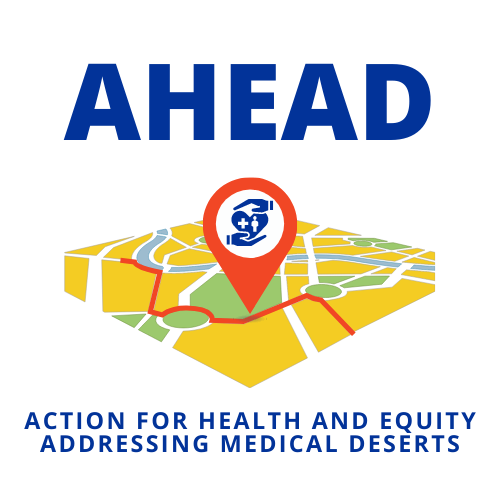Barriers to accessing needed health services
Aleksandar has been retired for several years and continues to live in a medium-sized town in M. Serbian County. He is highly educated, has worked in public service all his life, is the proud father of two children and grandfather of 4 grandchildren. Although he suffers from several chronic illnesses, including myasthenia gravis and hypertension, he does not see himself as needing much medical attention, as he does indeed take a lot of care of his health.
He was registered with a local general practitioner (GP) in the public primary health care centre (PHC), and there is a public general hospital nearby. He is often confused why it is impossible for him to do even basic examinations, specialist consultations and laboratory analyses in his local public PHC. The GP at the local public PHC explained to him that by law the public PHC cannot host the specialists he needs, and the laboratory unit at PHC is closed because there is a laboratory department in the nearby general hospital.
For Aleksandar, this means that in case of need for medical specialists and/or laboratory services, he must first make an appointment with his GP in the public PHC, who will then refer him to the nearby public general hospital. In a general hospital, he should first make an appointment with the available medical specialists, who will then perform a clinical examination(s) and order the necessary diagnostics and laboratory tests. So, the next step for Alexander is to arrange the necessary diagnostics and laboratory tests at a public general hospital. In case there is a long waiting list for diagnostics, or the laboratory in the public general hospital cannot do all the tests, it is necessary to go to a place that can provide all the necessary services including diagnostic/laboratory tests and treatment. That place can be a public hospital that is geographically and temporally further away from his home or a private practice. At this moment, Aleksandar must decide whether, based on his financial and time capabilities, he will make an appointment for services in public or private practice. When the diagnostics and laboratory results are finished, Aleksandar should visit a specialist doctor again to get an interpretation of the laboratory results and treatment recommendations. At that control visit (which also needs to be scheduled), specialist doctors give a diagnosis and a recommendation for (hospital or outpatient) therapy. In both cases, the mandatory health insurance cover therapy which is only prescribed by his GP in public PHC. This means that Aleksandar needs to schedule a visit to the GP at his public PHC again, in order to get a prescription for the therapy ordered by the specialist doctor. In order to avoid such a large number of referrals and depending on the urgency of his needs, Aleksandar, like many other patients, opts for the services of a private practice instead of those available in public facility, or postpones seeking medical services as long as possible. Although he has been paying mandatory health insurance for over 45 years to protect him from catastrophic health-related expenses, he often uses services in private practice, including pharmacies, which increases his out-of-pocket health expenses.
The last time he had a high blood pressure crisis, he requested health care, which denied him a home visit and the possibility of transportation to emergency unit. His son arranged for him to be examined by different doctors in the capital – Belgrade. Aleksandar believes that this would not have been possible if his son had not had good contacts with the doctors there. Fortunately, Aleksandar was able to receive appropriate treatment, but he is concerned about his health and that of his fellow citizens who may not be so lucky.
Recently, Alexander thought he had suffered nerve damage when he moved suddenly in his house. In excruciating pain and unable to move, he called an ambulance, but was told they didn’t have a car available. Surprised by the unresponsiveness of the public health system and the poor availability of timely diagnosis and treatment, he had to once again call for help from his son who lives far away, although he would not like his son to think that he is incapable for self-managing the diseases. However, his son was afraid that it might not be nerve damage, but something more serious like a myasthenia gravis crisis, so he tried to contact the emergency room at the hospital and explain the situation. He couldn’t believe that he was told to bring his father to the Emergency Center “when he felt better” or to refer the GP for home care, as they had no way of helping his father at that moment.
Since there was no public health service or health worker available to help him, the son arranged for a private doctor and nurse to come and do the necessary laboratory tests and provide therapy. He managed all this while traveling 80 kilometres to get to his father’s house in time and cover his health care bills. In order to take care of his father’s illness, he stayed with his father as many days as needed, taking on unpaid leave from work.
Alexander never felt like he was in a medical desert. Surrounded by buildings, his town has a primary healthcare facility, pharmacies and a public sector hospital, as well as private health practices. He learned from the media that Serbia still has a lot of unemployed health workers, in addition to open jobs throughout the country and permanent employment for work abroad. Nonetheless, he hopes that this his story is rare and that few people in Serbia suffer from similar inadequacies of the health care system.
Although he has been paying obligatory healthcare insurance for his whole life, without the help of his son, there would not be solutions to his urgent problems in public health sector in his county. It is a pity that public sector does not organize mobile health care and digital services to overcome barriers to access to health care services such as complicated organization of service provision, unavailability of competent health workers and appropriate skill-mix in primary care and high-quality and timely treatment of illnesses in a difficult stadium.






